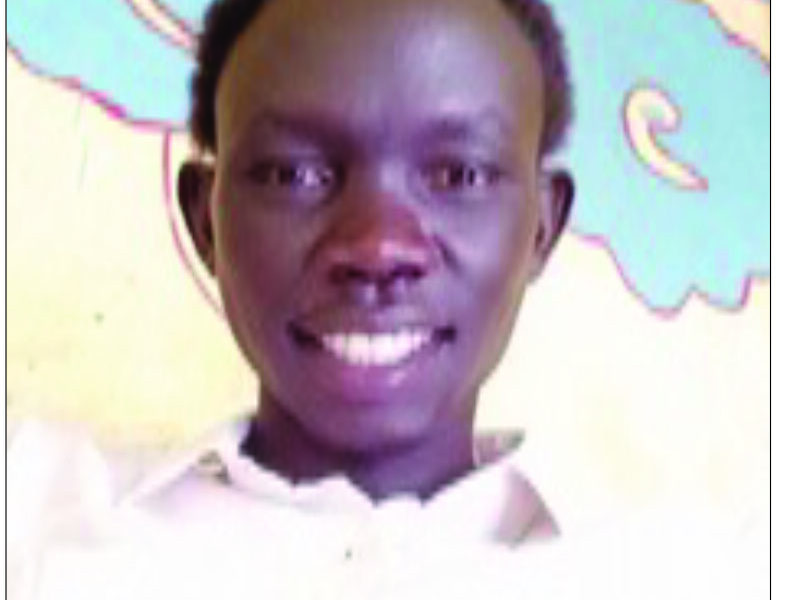By Ruon Puk Ruei
For a decade, the people of South Sudan, with their all different organizations, from Anyanya groups to the SPLA/M, had gone through a long revolutionary struggle against the oppressed Khartoum regime.
In that long struggle, all Sudanese rallied behind the SPLA/M because it gave a profound analysis and description of the Sudanese problem. The SPLA/M also stated clearly that the problem is not a problem of the South as it used to be described before by the other political forces in the South, but, in fact, it is a problem of the whole of Sudan. During a long path of struggle, millions of Sudanese people lost lives in the quest for freedom, but despite that, they never gave up but perhaps remained committed, dedicated, and resilient towards freedom, justice, and equality. All Sudanese participated in the struggle directly or indirectly for achieving a common purpose. The long journey of struggle ended with the signing of a comprehensive peace agreement between the government of Sudan and the SPL/M, commonly known as the as the CPA, in 2005.
After the CPA was signed, the Southerners were given a six-year interim period to prepare themselves before making a choice for their fate: either to stay united or break away from their own country through a fair and free referendum. At the end of the interim period, indeed, the South Sudanese unanimously decided to have their own country as we are today. The reason was to bring to an end the long suffering that stemmed from marginalization, injustice, inequality, and discrimination on the basis of religion or race. When South Sudan emerged as an independent state, the SPLM, by virtue of historical struggle, remained as the ruling party entrusted by all South Sudanese to spearhead the second struggle, which is the “process of nation building,” with its manifesto as the second holy book that would at all- times remind them not to deviate from the revolutionary objectives (justice, freedom, equality, and unity).
However, the pillars of vision—justice, equality, freedom, and unity—were/are the main themes embodied in the SPLM manifesto; they form the basis for creating a democratic secular state where all people will be free with equal rights, where basic services like food, health, education, roads, and security, among others, will be taken closer to people as prerequisites for economic growth and development. Here came the SPLM philosophy of “taking the town to the village.” These are some of the SPLM fundamental values and principles enshrined in the SPLM manifesto if one went through it.
In fact, the SPLA/M as the revolutionary movement has undoubtedly achieved some of its objectives: it led the people of the South through a long path of struggle until the signing of the CPA in 2005. It also managed to pave the way for South Sudan during a six-year interim period till the time of the 2011 referendum, leading to the birth of South Sudan as a sovereign state under the United Nations charter. Additionally, discrimination based on religion is no longer permissible, which means the idea of creating a secular state is relatively achieved. These achievements wouldn’t have been made if all South Sudanese people, together with their revolutionary movement SPLM/A, had not been fully committed and dedicated to the course of the struggle.
After having achieved “independence,” the SPLM as the ruling party failed to translate its ideological and political objectives into reality. The principle of unity based on recognition of diversity as well as equality, justice, and freedom for all as fundamental obligations for creating a free, just, and equal society has not been so far achieved. Indeed, these principles are the essential foundational values needed to build a peaceful society. As per now, we are still looking for freedom of speech, equal treatment, and justice for all from the ruling party. The pending security bill is evidently enough to deny freedom in our country.
After independence, the SPLM objectives have not been achieved partly because the party leadership did not sit down to define the type of state they fought for, they did not ask themselves how to achieve the movement’s objectives, and even the basic requirements for building a democratic state have never been discussed in any party forums. The worst thing is that the SPLM cadres seemed to have forgotten what had been stipulated in the party’s manifesto. The manifesto has been forgotten or dumped in a known place, which is the biggest mistake made by the party, but never too late, it can still be corrected again. Not only is the is the manifesto forgotten, but even the SPLM national days like August 18th every year as Veterans Day, November 17th as Liberation Day, and January 9th as Peace Day are no longer commemorated except for May 16th and July 30th Martyrs Days.
As a result of not reviewing what they put in the manifesto, the values of unity, justice, equality, and freedom are not practically heard, seen, and felt by all South Sudanese. Nevertheless, what has been heard and felt is that the country was once again engulfed in another internal war, which cost lives and destroyed the little foundation left by the previous colonizers. Here appears the difference between the “struggle era and the nation-building.” The struggle is a different thing, and building the nation is something else.
As the reminder call for the ruling party, you have historical obligations towards South Sudanese. The people of South Sudan are still waiting to enjoy justice, freedom, and equality as fruits of their long struggle. Go back to the manifesto in order to achieve equality by constitutionally recognizing equal dignity and ensuring equal treatment under the respected law. Moreover, freedom cannot be achieved without recognizing freedom of expression and association. Justice cannot be achieved if there is no independent justice system that provides justice for all and adjudicates the violation of such rights. If these ideals stipulated in the party’s manifesto are constitutional, legally provided, and protected, I believe there will be a possibility of revitalizing the SPLM vision and mission, as said by Ch Guevara: “Revolutionists die, but the vision never dies.”




